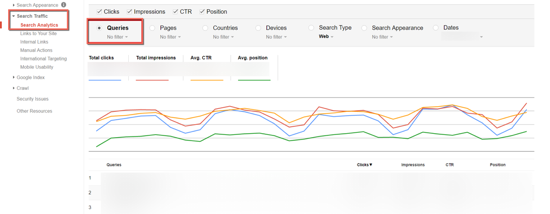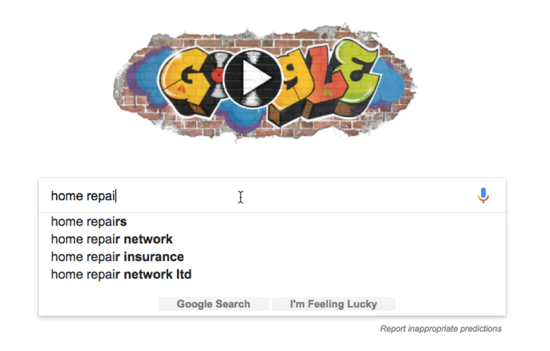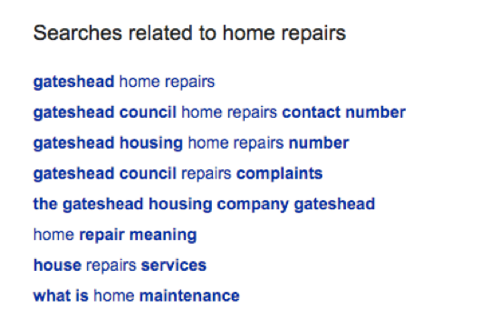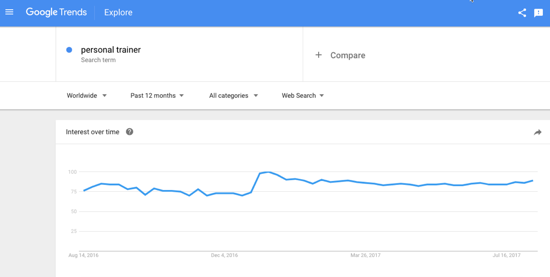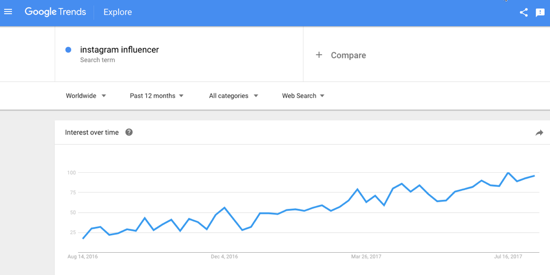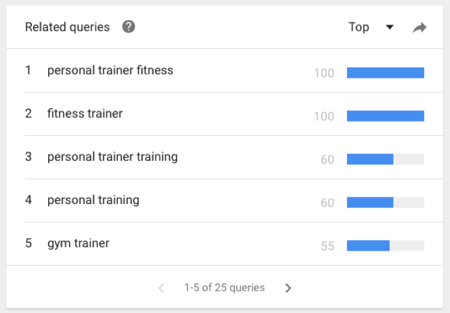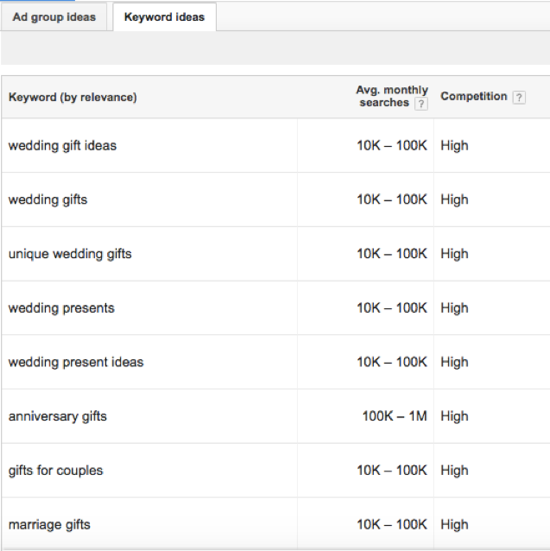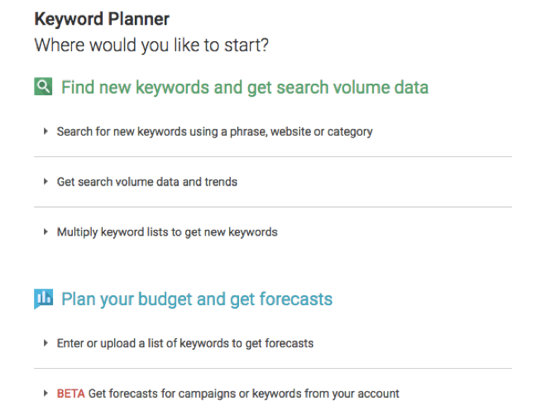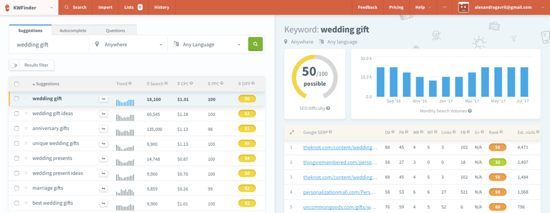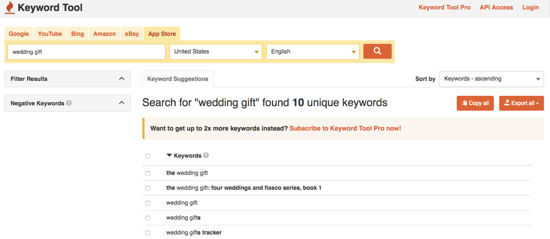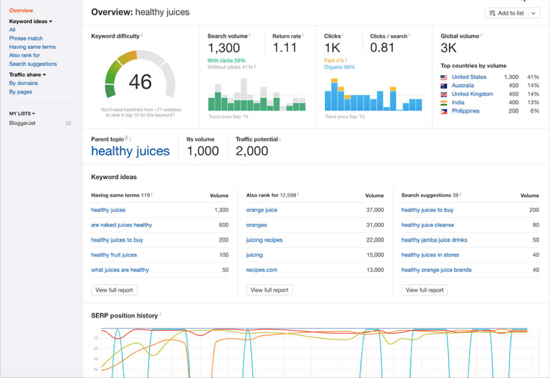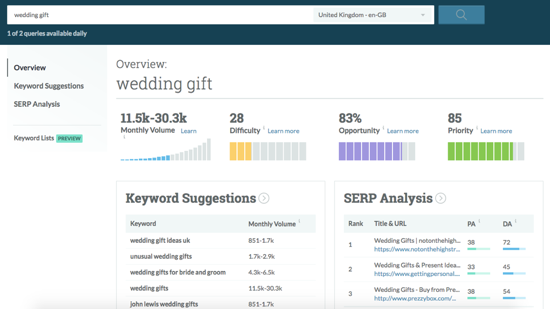A beginner’s guide to keyword research
Keyword research. So many site owners skip it thinking it’s no longer necessary. Because, hey, every article and resource out there tells you that you should be writing for users, not search engines. So, why bother, right?
Wrong.
Sure, writing content that answers your audience’s questions is critical to your success online. But if you want to:
- Help search engines better understand what your site is about and
- Increase the chances of your site showing up in the search results when users are looking for your business and products/ services
You can’t achieve these things without proper keyword research.
If you want prospects to find you in the search results, you need to know exactly which terms and phrases they’re using to find you online, and then optimise your site accordingly.
Want to learn how to do your own keyword research? Read on and by the end of this guide you’ll know exactly how to come up with a list of relevant keywords to optimise your site for success in the search results.
Is keyword research that important?
Yes! And here’s why:
Every time a user runs a search online, search engines like Google or Bing have to determine which results to display from millions of possible pages. They have to decide which are the most relevant matches for every single query. That’s why it’s critical to choose your keywords carefully so that search engines can match and display your website in the search results for the most relevant user queries.
The goal is not only to rank on the first page of a search engine results page for relevant keywords, but also to rank in the top positions on the first page, because those are the ones users click first. The closer you are to the top of Google’s search engine results page for relevant search terms, the more visibility and traffic you can get.
So, what type of keywords should I target?
During your research, make sure you focus on these two types of keywords:
- “Profit” keywords, meaning those that make you money. These include keywords related to your products alongside terms like “affordable” and calls-to-action such as “buy now”.
- “Informative” keywords, meaning those that bring you traffic or links. For example, if you provide domestic removals services, you can publish a great article or infographic on dealing with hard-to-pack items or advice for a cat-friendly moving. Publishing this type of educational content should be part of your long-term strategy, as it helps you to build your brand and online presence.
To achieve success, you should focus your efforts on both types of keywords, and not just one.
Keyword research glossary
To better understand the keyword research process, let’s quickly explain a few basic terms:
What is a keyword? In the context of search engine optimisation (SEO), a keyword is a word or phrase that describes the content found on a web page or site. The main reason you use keywords is to summarise the content on a page or site and to help search engines better understand what your site is about so it can then match it to a specific user search query.
What are long tail keywords? These are 3-4+ word queries that, according to Moz, make up over 70% of online searches. Why? Because they target users who have already done the initial research and are much closer to purchasing. For example, a user who is searching for “wedding photographer” is likely in the early stage of gathering information while someone searching for “wedding photographer London price” or “how much does a wedding photographer in London cost” (voice search query example) is most likely ready to buy those services.
What is a search volume for keywords? This is usually measured in average monthly searches. It represents the total number of searches per month for a particular keyword or search term. Ideally you should be looking at targeting keywords with the highest search volumes as this increases your chances of getting more traffic and sales. However, while product related keywords have a higher search volume and long tail keywords have a smaller search volume, they do compensate as there a many more long tail keyword searches.
How to research keywords
Follow these steps to do your keyword research:
Step 1: Come up with a list of relevant search terms
Start by putting together an initial list of terms and phrases that you believe your target audience would search for to find your business in the search results.
So put your customer hat on and try to determine which terms they would search for when looking for your business.
Include as many short and long tail keywords as you can think of. The goal here isn’t to build your final list of keywords but to gather as many relevant terms and phrases as you can that you think your audience might use to search for content related to your business. We’ll narrow the list down later in the process.
Step 2: Use tools to get additional keyword ideas
Next, you should check and see which keywords you’re already ranking for. A fantastic tool for this is the Google Search Console (GSC).
If you’re not already using it, make sure to set up your account now. This guide to Google Search Console explains what it’s important, the steps to set it up and what valuable information you can find and use to improve your site.
When it comes to keyword research, GSC is invaluable as it shows you the keywords your site is currently ranking for. To find out what they are, go to Search Analytics-> Queries in your GSC account.
It’s where you’ll find the average position for each of the keywords you rank for, along with the number of impressions and clicks they bring you. Keep in mind though that data is limited to 1000 keywords only.
1. Free topic search tools
Google auto-suggest
If you’re struggling to think of additional keywords people might be searching for, why not look at some of Google’s suggestions?
So go to Google, and you’ll see keyword suggestions as you type in your word or phrase:
You can also scroll down to the bottom of the page to see Google’s suggestions for searches related to your original input.
These are excellent for sparking ideas for other keywords you might have missed.
Google Trends
Google Trends is another great tool that shows you high-volume keywords in your niche. Plus, you get to check a keyword’s popularity over time so you can quickly determine whether the interest in your main keywords is growing (or falling), and whether it’s worth putting the effort into optimising for a specific keyword.
To use it, first go to Google Trends and enter the keyword you want to rank for in the “Explore” search field at the top of the page. The tool will then show you “interest over time”:
For example, here is the “interest over time” for the search term “personal trainer”.
As you can see, the search volume is stable, with a slight increase in the month of January.
Now here’s how quickly the interest has grown for the search term “Instagram influencer”:
When you scroll down the page, you’ll also find “Related queries” that you might’ve missed in your research.
Quora
There are lots of Q&A sites, but Quora is by far the most popular one. The fact that you can browse through thousands of topics and relevant questions and answers from thought leaders in any industry makes Quora a great tool for keyword research.
To use it you’ll need to sign up for a free account. Once you’re logged you, input a word or two into the search box at the top of the page, and hit the enter key. Quora will then show you the most popular questions on that topic.
Here are some of the questions that show up for the search term “wedding gift”:
As you can see, there are lots of interesting questions here, some of which you may have not even thought about. And that’s what makes Quora great – because it not only gives you long tail keywords you can use in your copy, but it also helps you to brainstorm new keyword ideas.
So next you should copy and paste one of the Quora long tail keywords into the Google Keyword Planner (we’ll use “wedding gift ideas for older couple” to exemplify) to check how popular it is in search and also to get a few more ideas.
Here are the related search terms for our example:
So now you have lots of related keyword and topic ideas that you can use in your website copy, blog posts and any other piece of content.
Answer the Public
Answer the Public is another good tool to help you discover question-focused keywords. To use it, type in a keyword into the search box and click “Get questions”.
The tool will return lots of questions that people ask in relation to that topic:
2. Free keyword search tools
Google’s Keyword Planner is a free and widely-used tool for keyword research.
To use it you’ll need to sign up for a Google account. Plus, we recommend running an active Google AdWords campaign when doing your research in order to avoid getting ranged search volume results that are too broad.
Check out this useful resource from Google that explains how to use the Keyword Planner to search for new keywords and get search volume data and trends.
Ubersuggest
Another great tool for getting keyword ideas is Ubersuggest which scrapes Google for suggestion keywords.
It’s very easy to use. Simply type in a keyword, select the language and source:
KWFinder
The cool thing about KWFinder is that based on your search term, the tool returns keyword suggestions, questions and autocomplete as well.
The downside though is that when you register for a free account, it’s limited to three lookups for 24 hours and 50 related keywords for search. If you want more, you’ll need to upgrade to a paid account.
Soovle
What makes Soovle.com different from other tools is that it gives you keywords suggestion results from Amazon, Wikipedia, Ask.com, Google Suggest and YouTube. To use it, simply enter your search term and hit “soovle”:
Soovle will automatically display suggested results from those sites. The reason we’re mentioning this tool is because chances are your competitors aren’t using it, so you have the advantage of discovering potentially lucrative keyword ideas that no one else is using.
KeywordTool
KeywordTool.io is similar to Ubersuggest, but what makes it even better is that it suggests terms to add before and after your keyword. So you get more keyword ideas for the same search. Plus, you can choose to get suggestions from different sources, including Google, YouTube, eBay and even the App Store. Here’s an example:
3. Paid keyword search tools that offer free trials or reports
The following tools are a lot more advanced, but they do offer free trials or reports. Now, if you want to get some real in-depth information about your website and find out exactly what keywords your competitors are ranking for, we’d recommend purchasing a paid plain.
This is a fantastic research tool that shows you related keywords, as well as sites that are competing for those keywords.
You can claim your 14-day free trial here, or you can run a search on Google for “SEMrush free trial” and you’ll find plenty of referral links.
Ahrefs is a competitor-based research tool that also provides a keyword research tool as part of the package.
As a first-time user, you can start with the free 14-day trial after which time you’ll need to switch to a paid plan.
Apart from keyword suggestions and SERP analysis, Moz’s tool is one of the best ones at assessing how difficult a keyword is. In other words, it can help you to determine how difficult it is to rank for a specific search terms.
Moz is more generous, offering a free 30-day trial to get you familiarised with the tool before you purchase a plan.
The next steps
Now that you have your list of keywords, it’s time to use it to optimise your website and your content. You can either follow the suggestions provided by the 123-reg SEO tool or you can read the following guides and learn how to optimise your site yourself:
- This article explains how to optimise a landing page to ensure that prospects find it in the search results. You’ll also find some useful advice for improving your pages to ensure that once visitors land on a page they take the action you want them to take.
- Title tags and meta descriptions need be properly optimised to ensure search engines and users understand what your site is about. Learn how to use your keywords to write compelling and SEO-friendly meta tags that attract more users to your site.
- A blog is a fantastic opportunity to put those powerful keywords to work and to increase your site’s visibility online. Read our beginner’s guide to blogging for business to learn how to get started with your blog, including how to find out what keywords and topics to focus on to bring in more visitors.
Your work is never done
This final step is an ongoing one. Keyword research never ends. Over time, the terms your prospects use to search for your business change so you’ll need to re-evaluate your list of keywords every few months and adapt to new trends. As your business grows and you gain more authority in the search engine results pages, you can add even more keywords to your list so you show up for more related searches.
What other tools and methods are you using to conduct your keyword research? Tweet us yours @123Reg.

